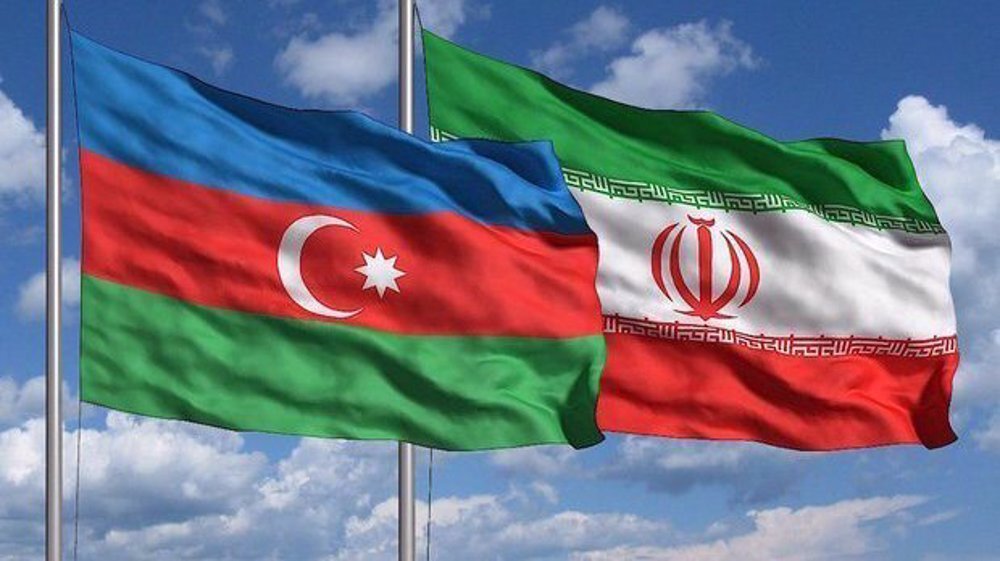Iran, Azerbaijan stage joint military drill

TEHRAN – Iran and the Republic of Azerbaijan conducted a joint military drill on Wednesday aimed at bolstering regional security and countering terrorist threats.
The drill, which took place in Azerbaijan’s exclave of Nakhchivan and Poldasht County in the northwestern Iranian province of West Azarbaijan, involved special forces and rapid reaction units from both countries.
The exercises, involving military personnel, combat equipment, aviation vehicles, and unmanned aerial vehicles, were meant to increase the decision-making skills of commanders and their level of professionalism, and enhance the interoperability of participating units, according to the Azerbaijani Defense Ministry.
Commenting on the joint drill, Deputy Commander of the Iranian Army's Ground Force for Operations Karim Cheshak said the exercise involved one battalion comprising the two countries' special and rapid reaction forces.
He highlighted the importance of the bilateral agreement that facilitated this exercise. "Based on the agreements made between the two countries, a battalion-level exercise was conducted to counter terrorism and ensure the sustainable security of the region, which has been threatened by terrorist groups," Cheshak stated.
The exercise, held over a single day, showcased the operational readiness and tactical capabilities of both nations' armed forces.
“The primary objective of the exercise was to implement a sophisticated military program that utilized a range of operational tactics and techniques to combat terrorist forces and organized crime,” Cheshak explained, noting, “The exercise aimed to develop joint staff and intelligence measures to counter threats, transfer knowledge and experience, increase combat readiness, and enhance the skills of military personnel from both countries in conducting combined operations.”
Additionally, he noted that the exercise sought to “improve command and staff cooperation, create deep military ties to confront common enemies, enhance operational skills by building capacities and strategic capabilities, and ultimately raise strategic capabilities for coalition operations.”
Cheshak emphasized the strategic goals of the joint exercise, noting that strengthening bilateral relations at both strategic and operational levels was essential for preserving peace and defending common interests in the South Caucasus. He also mentioned that enhancing skills for planning, executing, directing, and evaluating combined operations, and performing such operations with the cooperation of friendly, allied, and neighboring countries were key objectives.
According to Cheshak, the exercise was conducted in four distinct stages: reconnaissance operations, which included signal recognition of terrorist elements and area surveillance using drones and helicopters; combat patrol raids, featuring free-fall parachute operations at terrorist hideouts and subsequent raids; ambush operations, involving tracking terrorist groups through identified routes; and pre-planned artillery fires, army aviation, drone operations, and area clearance to secure the Aras Dam.
Cheshak highlighted that the most important message of this exercise was the establishment of regional peace and stability. He stressed that the longstanding, friendly, and neighborly relations between Iran and Azerbaijan played a crucial role in strengthening trust, participation, and military-defense cooperation.
He concluded by stating that the result of the joint exercise is peace and friendship for friendly and neighboring countries and a strong stance against nations that threaten the territorial integrity of Iran and Azerbaijan.
Back in early October last year, military officials from Azerbaijan and Iran reached an agreement on holding a joint naval exercise in the Caspian Sea.
The two sides also discussed the prospects for expansion of military cooperation between the naval forces of the South Caucasus country and Iran.
It is planned that future exercises will be conducted on a larger scale along the borders of the two countries.
Military officials say this initiative underscores the commitment of both nations to enhancing their military collaboration and ensuring regional security.
